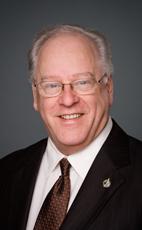Mr. Speaker, I move that the fourth report of the Standing Committee on Foreign Affairs and International Development, presented on Monday, May 5, 2014, be concurred in.
I will be splitting my time with the hon. member for Jeanne-Le Ber, and I look forward to his comments. He has a wise view of the world. I have been on the subcommittee on human rights with him for a number of years now.
The reason this particular report will resonate in this place is because of the things that are happening in the Middle East right now, particularly with respect to Boko Haram, which, as members will know, has kidnapped a number of young women. In some instances, they have been sold off as brides, and in other instances, they have been abused. I will not go into the details.
The report I am referring to came out of the subcommittee on international human rights back in May 2014. The title was “A Weapon of War: Rape and Sexual Violence Against Women in the Democratic Republic of Congo”. It speaks about Canada's role in taking action to end impunity. This report went on to the foreign affairs committee, of which we are a sub-body, and it was passed in its committee's fourth report.
It is crucial to understand that war as it was known for many generations has changed. An aspect of war that might have been at one time viewed, particularly by us in the west, as being horrendous is now almost an acceptable practice. As the title of this report says, rape is being used as a weapon. It is being used to humiliate and to embarrass.
I want to read a bit of the executive summary of the report:
In recent years, there has been an increasing emphasis at the national and international levels around the need to prevent and address widespread sexual violence in situations of conflict and crisis.
The report talks specifically about the war in Congo. Members have to understand that when there is a breakdown of government that comes about when there is a major catastrophe, such as an earthquake, and an example that comes to mind is Haiti, and there is a period of time when people are homeless and living in refugee-style camps and in environments that are far below the standard of living they are used to, changes for people at times like that lead to sexual violence and violence against women.
It has been noted that in the western world, one in four males abuses a spouse. The added pressure of a crisis is in no way a justification. It is simply a statement of the facts.
The subcommittee held a number of hearings on this issue, and over the course of those hearings, we were told of many of the misconceptions about conflict-related violence. We were also told that there are gaps in the policy response that contribute to the pervasive nature of this particular problem.
At the beginning of the report, we refer to impunity. Should one of the troops in a normal army commit an assault or a rape, or even sexual harassment, the expectation is that the person would be called before a commanding officer to account for such abusive behaviour. However, in some militaries in some countries in the world, it is seen as a reward for service. It is also seen when there are tribal-type conflicts where the family of one's opposition is shamed by the rape of a daughter or wife, a niece or a mother. We do not even begin to understand that process. That is why this debate is important.
If we stop to consider the Rwanda genocide, some 20 years ago, with one group of people versus another, the slaughter was unbelievable. Romeo Dallaire, the Canadian general at the time, was in command, and he wrote a book, Shake Hands With the Devil, which outlined the things that happened in that war.
Today there are tens of thousands of children who are 20 years old who are the result of the rapes during that time. We have had testimony before our committee about what has happened to them in their lifetimes and how the mothers, who were shamed by multiple rapes and attacks, had children with no idea who the fathers were. The tendency of the government of the day in Rwanda, and the tendency of the victims, was to hide this and not discuss it. Of course, that makes the problem for the direct victim, the mother, that much worse.
We all understand that for post-traumatic stress healing, victims have to verbalize what has happened to them. They have to lay out before someone the pain they are suffering. However, oftentimes, little account is given to the other victim, the child. Oftentimes they are in mixed tribes with the two tribes involved in that conflict, and neither side wishes to even deal with that young person.
We have had a number of these child victims grow up and immigrate to Canada. In Hamilton we were marking the anniversary of the genocide not that long ago, and one of those children was there. It was a very poignant moment to listen to that person give testimony as to what happened to them, to their mothers, and to their families. Families were destroyed. The way one individual described it was that his mother was numb. He grew up with no sense of comfort or feeling from his mother because of that attack that had been so vicious.
It is important for us to understand that although that particular conflict was 20 years ago, today, in this world, this is happening on a much larger scale.
In addressing the issue of impunity for those people who think they can undertake such terrible actions, members may note that I am hesitating a bit, because I am having difficulty finding the words.

